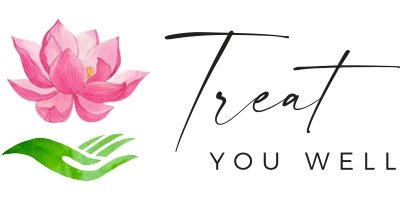Clinical Acupuncture
FAQ
Is Acupuncture Safe?
In the hands of a licensed practitioner acupuncture is a very safe, pain-free, effective, treatment for many acute and chronic conditions that has been used for thousands of years.
Acupuncture Canada practitioners use single-use (disposable) sterile acupuncture needles. Acupuncture needles are very fine and flexible, about the size of a human hair. In most cases, insertion by our Registered Acupuncturist is performed with minimal discomfort. All needles are used only once and each point is alcohol swabbed prior to insertion. A new individual needle is opened from a sterile and sealed package for each point applied.
Is Acupuncture Painful?
Acupuncture treatments are not painful. Acupuncture is performed with hair-thin needles that do not resemble the pain felt from a hypodermic needle. Patients often fall asleep and are in deep relaxation on the table. Some people may feel the needle more than others especially if they don’t or never have sufficient sleep that may increase the sensitivity of the body.
Are there any side effects?
One of the great advantages of acupuncture is that it is very safe. Other than soreness, an occasional bruise, or minor bleeding where the needles were inserted and there are no side effects.
How does Acupuncture work?
Sixteenth century Chinese doctors believed that illness was due to an imbalance of energy in the body. In acupuncture, disposable, stainless steel needles are used to stimulate the body's 14 major meridians, or energy-carrying channels, to resist or overcome illnesses by correcting these imbalances.
Where do the needles go?
The human body has 52 single acupoints, 309 double acupoints and 50 extra-meridian acupoints, total is 720 acupoints. Needles are placed at specific acupuncture points on the body. Depending on the specific condition the needles commonly are placed at or below the elbows, and at or below the knees. Other common areas are on the back, abdomen, ears and scalp.
What should I expect for my first treatment?
During the first treatment the practitioner will take a complete health history and establish a complete evaluation of the condition you are seeking treatment for and ask you questions about lifestyle, not only for the condition you are being treated. The practitioner will feel your pulse, look at your tongue and may palpate specific meridians to look for tender areas. The initial treatment may last between 1 and 1.5 hours, and all subsequent treatment are for 1 hour.
Can I receive acupuncture when I am pregnant?
Acupuncture is safe during pregnancy and can help relieve many pregnancy and postpartum conditions. Because there are some acupuncture points that are contraindicated during in different trimesters of pregnancy it is important to inform the practitioner if you are pregnant. We highly recommend acupuncture during through your first trimester to help assist embryo development, prevent miscarriage, and address any other symptoms that may arise.
How can I prepare for my acupuncture treatment?
The best way to prepare is to eat a snack or a light meal before treatment so the you body has sufficient energy to work with. If possible it is best to wear loose clothing (like T-shirt and Shorts) so that your arms and legs are accessible for treatment. After treatment we recommend you drink a glass of water to help stabilize your energy.
What are the advantages of acupuncture?
One benefit to acupuncture is that it is a drug-free way to optimize health. With drugs, people often develop a tolerance, or the need for an increased dosage to achieve the same required effect. However, this does not happen with acupuncture. In addition, acupuncture allows the doctor to immediately examine a person's response to the treatment and adjust it if necessary.
Do Western medical doctors approve of acupuncture?
Yes. If you are undertaking long-term medication for cancer, chronic disease, pregnancy and etc… You could consult to your family doctor if you can combine TCM acupuncture treatment.
Acupuncture and Traditional Chinese Medicine, unfortunately, are not regulated nationwide in Canada. However, there are currently five provinces established by provincial/territorial law with a mandate to protect the public’s right to safe, competent and ethical services offered by registered TCM Practitioners, TCM Acupuncturists, and/or TCM Herbalists who are members of the regulatory bodies. Currently, British Columbia and Ontario regulate both TCM Practitioners and Acupuncturists. Alberta, Quebec and Newfoundland and Labrador regulate Acupuncturists only.
In addition, the World Health Organization currently recognizes more than 40 medical problems which can be helped by acupuncture treatment. The FDA regulates acupuncture needles as medical devices.
Has your Acupuncture question been answered?
If not, please don't hesitate to contact us. We are happy to help.
